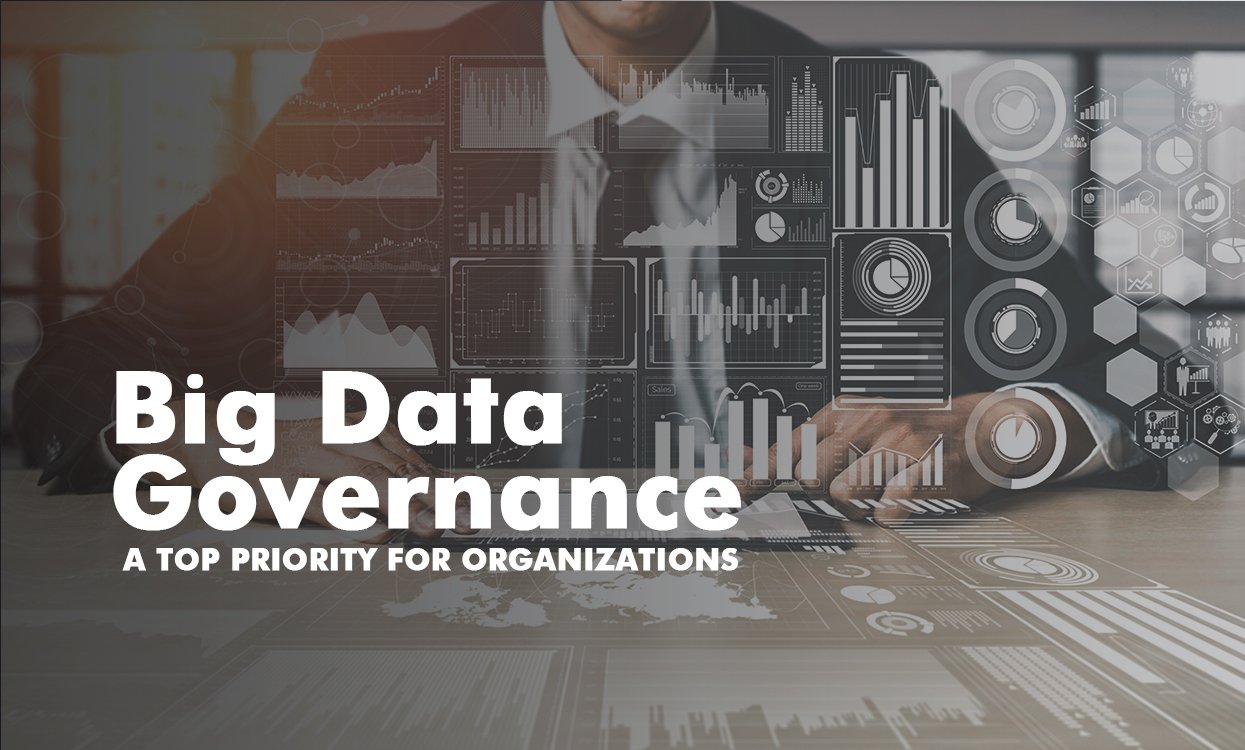
Big Data Governance: A Top Priority For Organizations
The most significant factor that obstructs every organization worldwide from realizing the optimum potential of their data assets is the uncontrolled and widespread data disorder. In the ever-transforming, ever-growing competitive business world, companies have acquired massive volumes of sensitive data within no time and established big data environments to store it. And if no one knows where its source is, how to access it, what it implies, or how credible it is, it will remain idle, untapped, and untouched. This is where we need to know about Big Data Governance.
Big Data Governance and Data Management
Data is a significant concern for every modern business. However, Big Data Governance includes the group of people, processes, and technologies that enables an organization to manage and protect data as an enterprise asset. It is becoming a significant aspect for the industries because of the bulk amount of data, the emergence of big data environments “Big data analytics“, and the rising regulatory complexities and challenges facing data security to ensure better outcomes.
Most organizations have started implementing a data governance framework to safeguard data assets rather than turning them into data liabilities. Furthermore, it intends to draw a baseline of data understanding and keep data benchmarks to sustain data integrity.
The Need For Big Data Governance
Of course, every business firm requires a solid data management system to solve business problems and turn the data into powerful and informational insights in this digital business era. Moreover, it is essential for organizations to remain responsive. This can also help industries to open up new and innovative trends in business.
The Key Goals Of Big Data Governance Are:
- Implement compliance requirements
- Reduce risks
- Enhance data value
- Establish internal data rules
- Cost reduction
- Upgrade internal and external communication
- Optimization and risk management
Why It Really Matters?
Most of the companies may have some form of data governance for individual business departments. Hence, the introduction of data governance acts as a set of formal data control systems for organizations. Formal data governance is usually implemented once the firm cannot implement cross-functional tasks effectively. Also, it posses clear-cut benefits:
- Accurate data to help organizations take a comprehensive decision support
- Increased efficiency through the use of synergies
- Enhance compliance and data regulations
- Help industries to set clear rules for changing processes and data that will help to have an agile and scalable work strategy
- Cost reduction through the provision of central control mechanisms
- Provision to reuse data and processes
- Provides better data quality and documentation of data processes
Data Governance In Big Data Environments:
As we know, data governance is a multi-faceted concept. It provides the industries with various tools and processes to foster in-depth data understanding. Since it is a comprehensive procedure, it includes a core set of solutions. It also helps to give an adequate governance foundation.
Data environments require centralized data governance and a business-oriented model beneficial to data assets across the entire enterprise. Hence, governance of data combines the right set of tools and functions that the whole organization can make use of data gathered to extract significant business values. Learn Reasons To Implement Big Data Analytics
Big Data Governance:
Transparency and traceability
Firstly, this aspect helps to track the source of the data. Where a particular data come from, and the processes and system have it moved within the organization. All the path gets to record and track accurately.
Data quality
The quality of data is an aspect to be looked upon. The collected data must always be accurate and trustworthy, or else it will not benefit the organization, as expected. Moreover, it ensures the reliability of the collected data.
Accessibility and understanding
Without these features, the collected data will only act as a warehouse full of goods but without a key. Of course, it is essential that the users can easily understand the collected data. The data should be categorized, organized, and stored in a place that its users can easily access. This will enable them to make use of the correct data at the right time.
Ownership and collaboration
Data owners and stewards must be clearly defined for every data collected. Also, data ownership and responsibility are required to approach business users if they have questions regarding data use and applicability.
Conclusion:
In conclusion, the position held by data governance is more prominent in the age of the big data environment. Above all, Big data environments are abundant for deep insights, but they will act as storehouses of unused data if they lack proper governance and accountability.





